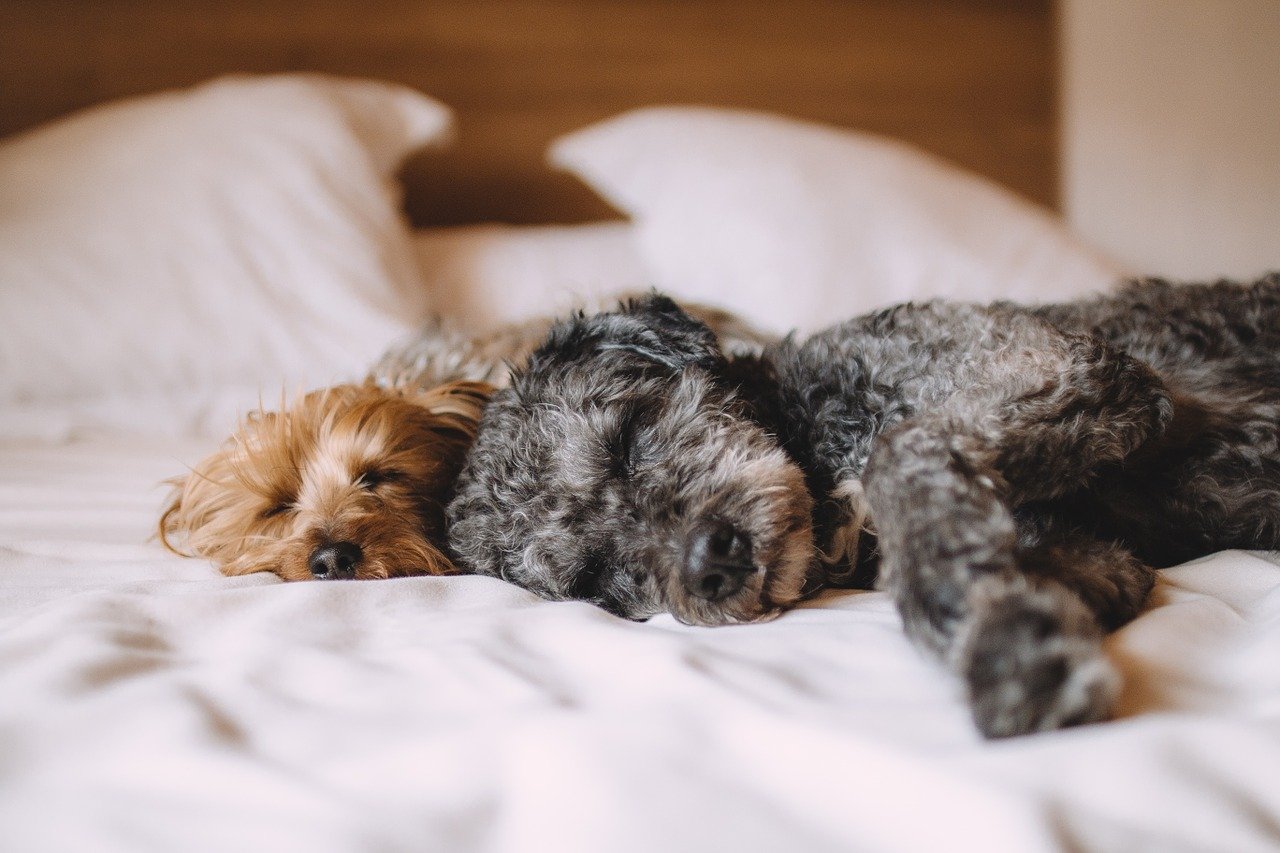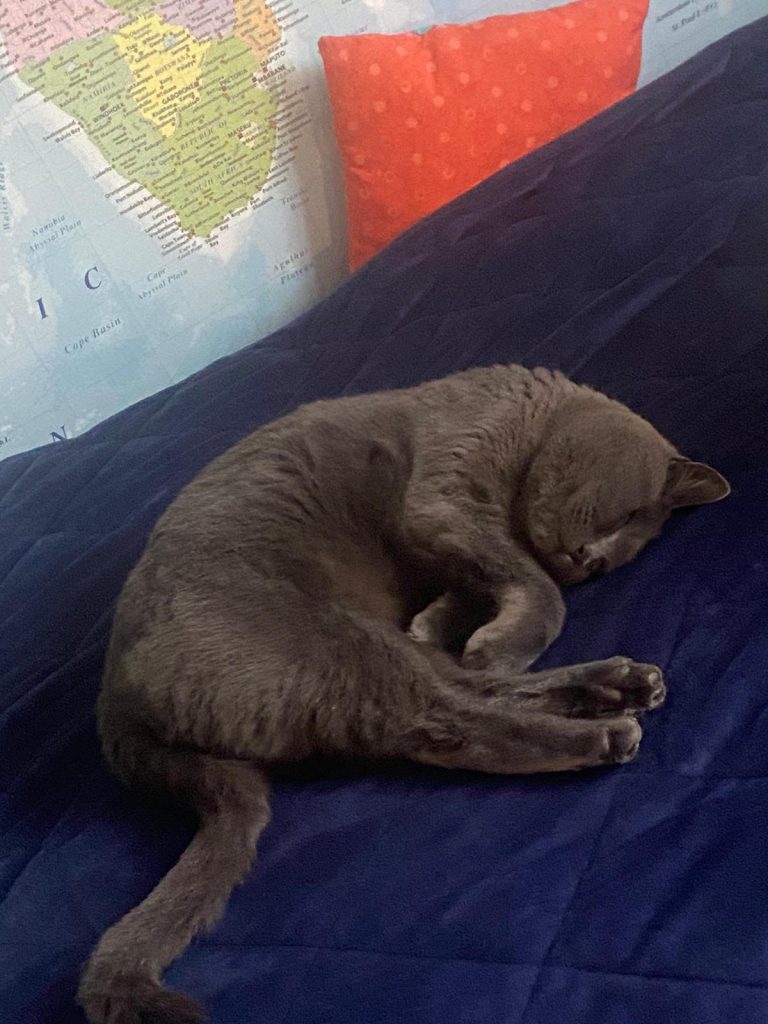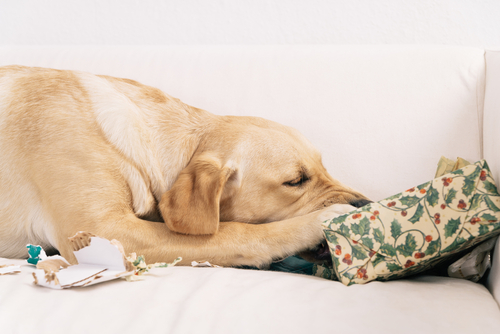
This is a condition that can affect both dogs and cats. It can be very distressing for both our pets and owners alike. Separation anxiety in pets is triggered by distress from being separated from their owner with whom they have a strong bond. Dogs especially are very social animals so being alone does not come naturally for most of them. This disorder is more commonly seen in younger dogs but can occur at any time in a pets life, especially during a period of change.
During this pandemic our lives have been affected in many ways. This in turn, has affected our pets. Where a lot of pet owners would normally be away from home due to work and life commitments, they are now at home with their pets much more.
Our pets can react to this change in different ways. Most of our pets will be very happy to have us around more and enjoy all the extra affection and quality time. However, a few may find the change harder to adjust to. They may find the new routine disruptive and even potentially stressful. In these cases, it is good to try and give your pet a little space every now and again.
Alternatively, they may have become more dependent on our companionship causing a potential problem when life begins to return to “normal”. Or you might have purchased or rehomed a pet during lockdown, and their entire experience in their new home has been with family members in the house. Now that a lot of us have returned to school and work, we are expecting to see more separation anxiety issues developing.
Our pets are very sensitive to our emotions and sometimes, if we are finding a situation stressful, they can end up feeling more stressed, anxious and unsettled as well. As we (hopefully!) move towards a return to normality, we may find that our pets find this hard to deal with. They have become used to, and enjoyed, our constant company and attention; but this may lead to signs of separation anxiety as they struggle to adjust to the change.
Signs of separation anxiety show in a range of signs but common behaviours observed are as follows:
Dogs
Destructive or disruptive behaviour, barking, howling, pacing, salivating, panting, drooling, trying to escape, digging, urinating, defecating inappropriately and perhaps even eating their own faeces.
Cats
Urinary spraying, inappetence, destructive behaviour, excessive vocalisation.
If you have noticed any of these signs, then there is a possibility that your pet may be suffering from separation anxiety. However, it is worth noting that some of these signs can also be due to an underlying medical issue that needs addressing. Our vets are always on hand to give your pet a health check if you have any health concerns before presuming the cause is separation anxiety.
If separation anxiety is believed to be the cause, then there are things that can be done to help your pet feel safe and secure when you are not around. The aim is to teach your pet that being alone is a positive experience where they can rest and relax, rather than feeling scared or like they are being punished. Treating separation anxiety normally involves a multi-layered approach using training and behavioural techniques alongside pheromones, calming supplements and acupressure vests if indicated. This process should be done gradually, and each pet will respond at their own pace, so it is important to give them time and to not rush the process.
Tips to help.
- Ensure your pet is getting enough mental and physical stimulation. A tired and content pet is more likely to settle.
- Prepare a ‘safe’ place for your pet to be left alone in (bed area, cat hide, dog crate) and line with a piece of clothing that has your scent
- Provide environmental enrichment (leave a radio on at a low volume, puzzle feeders, food filled toys like kongs etc)
- Spray bedding with a pheromone spray, give calming supplements or place acupressure shirt if using
- Minimise environmental stressors, such as dogs reacting to passers-by, or cats reacting to other cats in their territory (curtains can be closed etc)
- Remember to always provide fresh water
When starting to acclimatise your pet to being left alone; initially leave your pet for only a short period of time whilst you are still in the house (go into a separate room for example). This can then be built up for longer periods of time and progressed to leaving the house from short to longer durations of time.
If you are still in lockdown, pre-empting your return to ‘normal’ could minimise the onset of any signs of separation anxiety. Start introducing your pets to alone time well in advance using the tips above.
Separation anxiety can be quite complex to treat and working out triggers and tailoring treatment to the individual pet will have maximum impact on treating it. Please don’t hesitate to call us at the clinic for further guidance and we can also direct you to local behaviourists who can support both you and your pet during this time if needed.





















